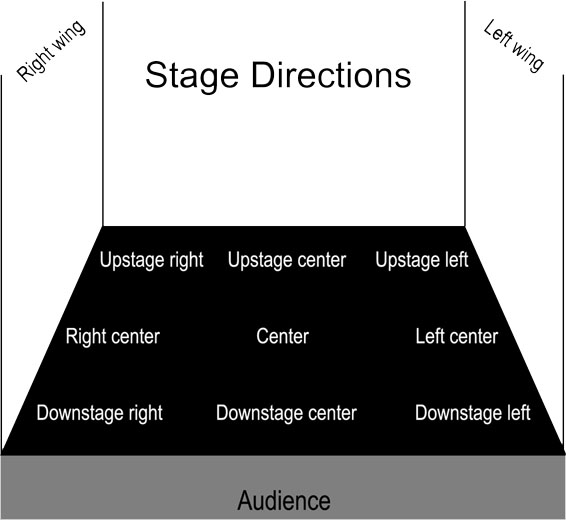So, I'm back in another play and I thought it was high time to pick up my theater ramblings again. Tonight's theme: know when you're the wrong age to play a part.
Now, there are times when it's alright to grossly miscast someone in a part they are too old or too young to play. And those are: high school and college. These are places and times when the casting pool has only a three-year age range so everyone has to play up or down in their age range. And it's expected. And costuming, makeup and a darn good director (who can coach the actors on walk and mannerisms) can help with showing a greater range of ages than there are in the cast. Case in point: my high school did The Crucible. And the girl playing Rebecca Nurse was actually younger than the girl playing Abigail. No problem. It was high school. You can get away with it there.
Oh look, they're all the same age!
But in the real world, and yes, I'm calling community theater the real world, the audition pool is mercifully larger than your high school drama club's. Old men can be played by, get this, old men! Middle age mothers can be played by....any guesses? Middle aged women! And ingenues can be played by teenaged girls.
Ahhh....all is right with the world.
Or is it?
Ladies and gentlemen. Take a good look at your driver's license. I know the picture isn't flattering, but it is honest. If you look like an old man, you can't play young heartthrobs. If you look like a middle-aged mother, you can't play ingenues. I don't care how much vocal training, make up, wigs, or working out you do. You look too old for some parts out there. I have yet to meet a director in community theater who can direct well enough to get a mediocre actor to give such a stellar performance that the audience believed he was markedly older or younger than he really was.
Luckily, we have old women who audition for Rebecca Nurse in community theater productions of The Crucible. And we have teenagers who audition for Abigail.
Middle-aged women and men, ya need to be honest with yourselves and realize, you need to start putting away the dreams of playing Gypsy or Brick, and you're gonna have to audition for Mama Rose or Big Daddy. If you're a parent in real life, chances are you can't play the child onstage.
Which brings me to ingenues. Yes, I still thought I could play Liesl in The Sound of Music until I was 24. I held onto that dream, because I thought I was young enough, talented enough, and gosh-darn it. People liked me! But then I saw my friend play Liesl and she was 14. *gulp* I realized then and there that I had outgrown one of my dream roles. Because I couldn't compete, at 24, with the *acutal* dewey-eyed, naïveté of a real teenager! Ah well. Time for me to audition for Sister Margarettta in my twenties.
Yes, it was hard for even me to put some roles up on the Roles That Got Away Shelf. It was hard. It was hard to tell myself "Hey, you're not a sweet, young thing anymore. Let the pretty parts go to the pretty young girls." But I did. And I'm better off for it, because there are better parts for twenty- and thirty-somethings out there than the one-dimensional ingenues.
OMG look! An adult playing an adult, and children playing children! Will wonders never cease?
The only thing sadder than people not realizing when they're too old for a part, is directors who continually miscast them. Because they're only perpetuating the empty dream. But that's another blog post.
Let it go. You'll be ok.
 Right here in this picture is a great example of what you SHOULD do if there is an actor downstage of you. See how the actress in blue is still visible? She knows to shift her body weight on the sofa so that the audience can still see her, even though the actress in black is downstage. (Please view my earlier post titled "Upstage, Downstage" if you're unfamiliar with these terms.)
Right here in this picture is a great example of what you SHOULD do if there is an actor downstage of you. See how the actress in blue is still visible? She knows to shift her body weight on the sofa so that the audience can still see her, even though the actress in black is downstage. (Please view my earlier post titled "Upstage, Downstage" if you're unfamiliar with these terms.) 






